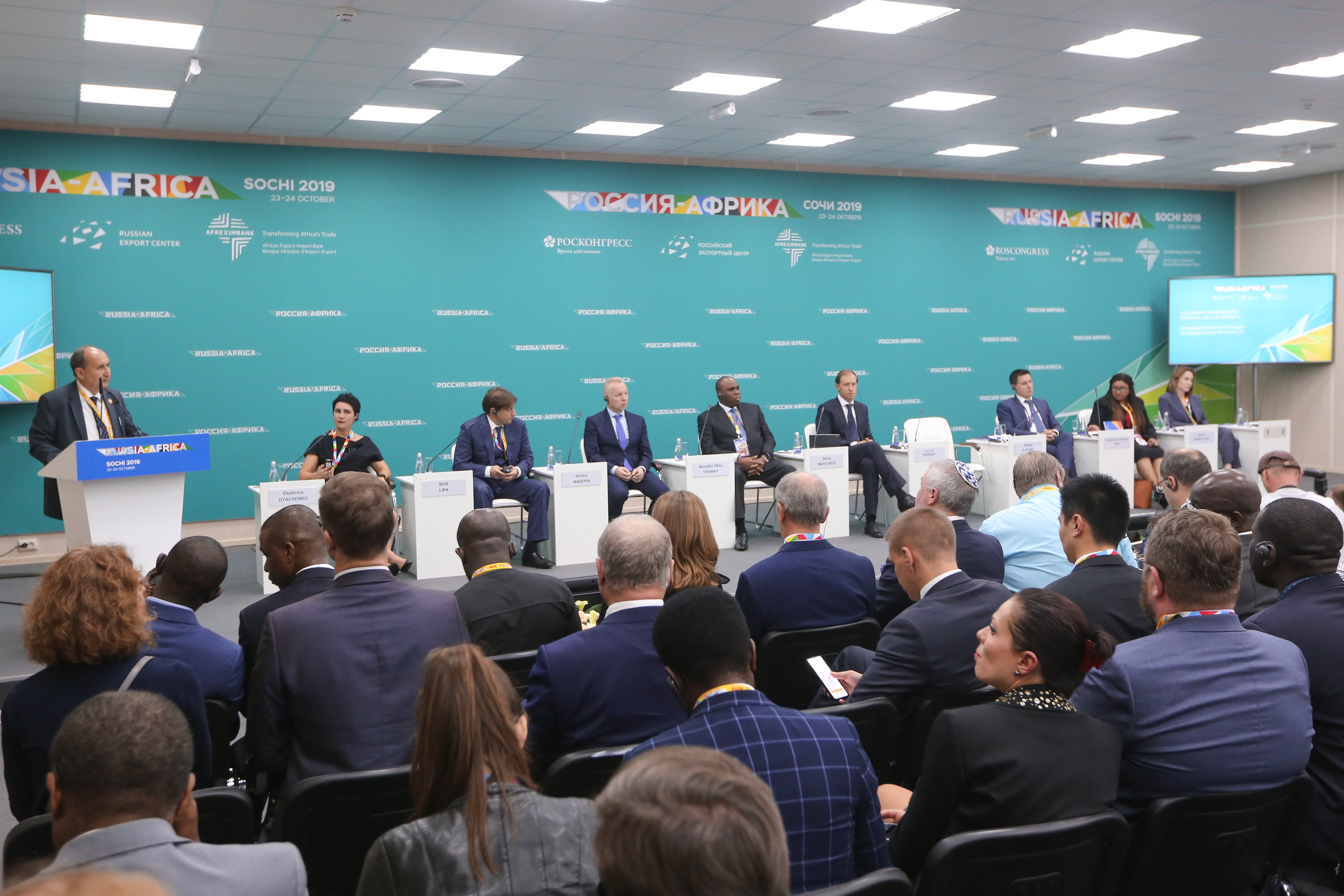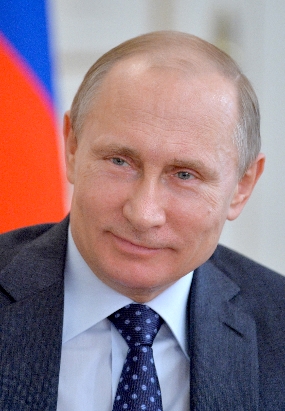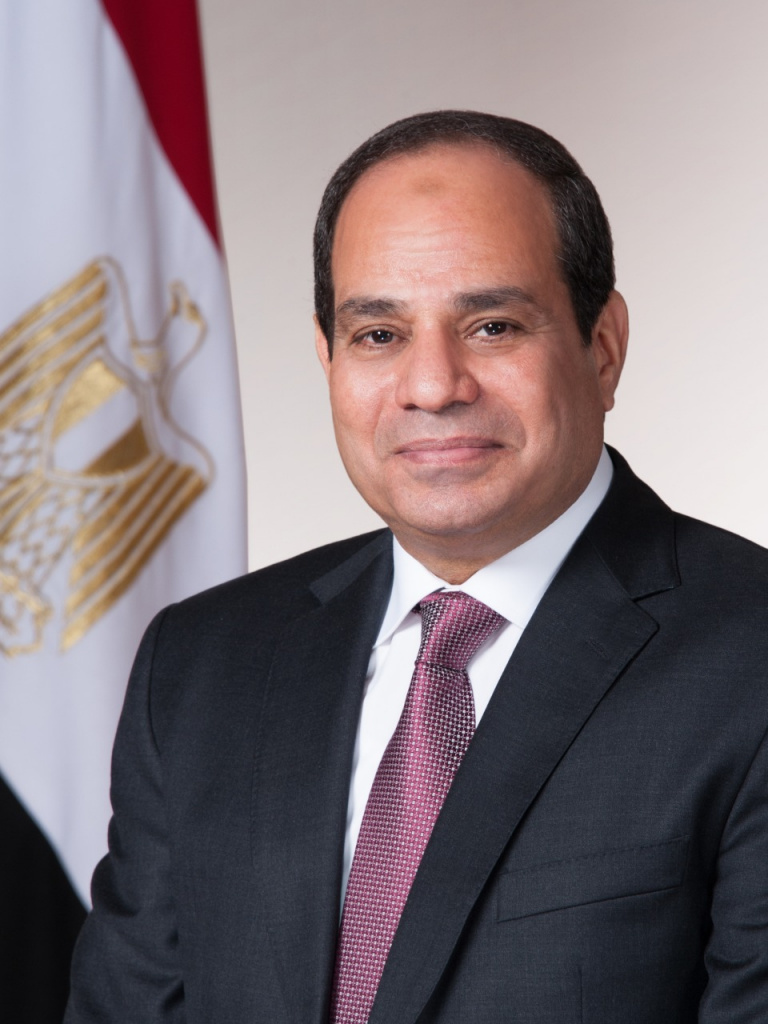Collaboration in Industry: Potential Areas of Growth

KEY CONCLUSIONS
Russia and African countries are interested in broad industrial cooperation
“I would single out five main strategic areas in which our companies have already begun building cooperation with our African colleagues. Above all, this involves the modernization of the existing industrial infrastructure, and in this regard, projects are being implemented to supply the latest Russian equipment for metallurgical and mining enterprises. The next area is the development of the transport and logistics system, including the supply of rolling stock for railways, airplanes, and helicopters of various classes and purposes, as well as security and control systems for these modes of transport. The third pillar for industrial cooperation is involvement in the creation of energy infrastructure, oil, gas, and generating capacities, including hydro and nuclear energy, as well as promising projects in renewable energy sources. Another cross-sectoral area incorporates the entire perimeter of food security issues […]. And, finally, we believe there are great prospects for our medical and pharmaceutical industries to take part in the technological development of the healthcare system and drug supply for all countries of the continent”, Russian Minister of Industry and Trade Denis Manturov said.
“We have identified two points for our presence in this region: the north, namely Egypt, where we are currently implementing a project to supply 1,300 passenger cars, and the south, namely South Africa. All that is left for us to do along with our colleagues present in this room is to build a trans-African highway, connect the northern and southern parts, and ensure appropriate the economic growth and industrial growth, while we will sell our passenger cars and locomotives”, said Kirill Lipa, General Director of Transmashholding.
“Our presence in Africa began more than ten years ago in 2008 with the acquisition of the bauxite mining company Sierra Mineral Holdings (SMHL). To date, production has exceeded 3 million tonnes, including 2 million tonnes of high-quality bauxite that is exported […]. Now we are pushing forward with the construction of a hydrated plant. The project involves the establishment of the first enterprise [in Sierra Leone] for the processing of non-metallurgical products with high added value. It will have capacity of 200,000 tonnes of aluminium hydrate per year”, said Karima Nigmatulina, General Director of Vi Holding.
“Our strategy is to diversify the African continent so that it receives investments from a variety of sources, including Russia. We view Russia as one of the main suppliers of these investments. We need experience in agriculture and the raw materials industries”, said Benedict Okey Oramah, President and Chairman of the Board of Directors of African Export-Import Bank (Afreximbank).
“There are so many areas in which we can collaborate. Egypt currently needs a large number of buses. It also needs to develop the transport system because the existing roads are extremely congested right now, and, of course, Russia is one of the leading countries in this area, so there is no doubt that Russia’s experience will help us. We have everything we need for this. We also have natural gas reserves. This is another area in which Russia is one of the world leaders, so our Russian colleagues can certainly help us here”, said His Excellency Amr Nassar, Minister of Trade and Industry of the Arab Republic of Egypt.
PROBLEMS
Heightened risks associated with investing in Africa
“We realize that we have a sort of time lag for when we can just be sellers [of mineral fertilizers]. But the local authorities will nevertheless raise the issue of localizing fertilizer production. And we will have a choice: either we take this risk, participate in joint ventures, and the leaders of the countries politely offer us to be partners with all the ensuing consequences – bring money, bring technology, set up distribution, and be responsible for financial risks – or we just remain traders, but then, if they build their own plants, the first thing that they will do is close this market off to external ones”, said Dmitry Mazepin, Chairman of the Board of Directors of URALCHEM UCC.
Lack of information
“Our community SADC [Southern African Development Community] has continued to cooperate with Russia for many years. We don’t only cooperate in the public sector, but also in the private sector. However, there aren’t many examples of successful collaboration in the private sector. In many ways, there are no joint private projects due to a lack of information. The information that we receive and provide here is very limited. Last year I was at the Moscow Chamber of Commerce and Industry, and it was very clear that the Chamber of Commerce doesn’t know much about Africa”, said SADC Executive Secretary Stergomena Lawrence Tax said.
SOLUTIONS
Systematic state support for business projects
“Systematic support from the state is one of the key conditions for the success of any business projects abroad. And, in this regard, we have developed a whole complex of measures. We have set the goal of identifying promising niches and areas of cooperation and assisting companies in establishing business ties with trade missions of the Russian Federation. There are four of them on the African continent: in Algeria, Egypt, Morocco, and South Africa […]. Our trade missions around the world work in close cooperation with the Russian Export Center, which administers non-financial and financial mechanisms to support the export of our products. They could significantly reduce the cost of Russian machinery and equipment. In addition, Roseximbank and EXIAR, a member of the REC Group, provide businesses with access to borrowed financial resources on favourable terms”, Manturov said.
“You can only enter the African continent in principle with infrastructure and state support. Because the African continent, of course, is very attractive for investment. We all understand how many people live there, what potential there is, and what the potential for growth is, but there are huge financial, logistical, political, and other risks there, and it’s a rather risky task to go alone against the tide and take these risks upon ourselves”, Mazepin said.
Creating mechanisms to fund mutual trade and joint projects
“Today, we signed an extremely important agreement on the sidelines of this Forum to create a trade financing platform jointly with VEB.RF, Sberbank, our export center, and international companies. This allows for our trade turnover to include both the resources of Russian banks and the liquid resources that African countries sell to the world […]. So far, we have incorporated approximately ten African countries into this loop, but we understand that we can expand the mechanism as it develops. So, the goal that President Vladimir Putin spoke about this morning in his speech to double our trade turnover is absolutely real”, said Andrey Slepnev, Director General of Russian Export Center.
“At present, Vi Holding, in collaboration with Afreximbank, the state-owned Giprotsvetmet company, and Russian Export Center, is developing a new platform, including on the sidelines of this Forum, which will become a major project to create a large-scale interstate platform for the implementation of mining projects in African countries. We are talking about developing an integrated system of collaboration between Russia and the African countries, pan-African financial institutions, and investors that are interested in doing so in order to create tools to fund geological exploration and prospecting that are to be carried out mainly by specialized Russian organizations. This also implies getting Russian business structures involved in the commercial development of deposits according to the priority list of resources and under state guarantees from African states”, Nigmatulina said.
For more information, visit the Roscongress Information and Analytical System at roscongress.org


